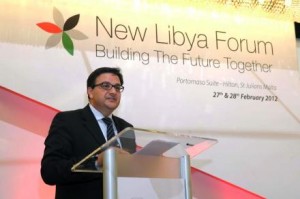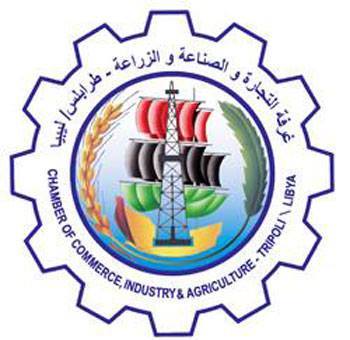Malta identifies itself strongly with Libya and wants to play a strong role in its future, said Malta’s finance minister yesterday, . . .[restrict]but Libyans needs to work toward reconciliation and most urgently, the militias must lay down their arms.
Maltese Finance Minister Tonio Fenech told the New Libya Forum conference at the Hilton Hotel in St Julians that both countries had a great deal to offer each other. Once stability had returned to Libya, Malta’s businessmen would find a plethora of opportunities there.

The Libyans in the audience may well have reflected that the concerns about the persistence of armed militias and the stability worries their presence perpetuates, are becoming a fixed feature of any comments from international statesmen reflecting on Libya’s future.
However Fenech was particularly eloquent in his characterisation of the challenges Libya faces.
“Libya’s wounds need to heal” he said, “The process of democracy-building cannot be embarked upon without a parallel process of reconciliation. The Libyans need time to come to terms with their past, courage to forgive and determination to take themselves into a new era as a unified and cohesive nation state. The laying down of arms is essential for this process to move forward”.
Fenech continued: “The parliament, the judiciary and the executive all have to be constructed around the values of the people they represent. Malta is ready to assist Libya with the development of its institutions”.
He asserted that Malta and Libya were in a part of the world that was moving into a new era. “ The Mediterranean will once again be the catalyst for a vibrant and forward-looking region. The government will ensure that in this process for change and development, Malta will be at the forefront with our neighbours, ensuring opportunities for all”.
He revealed that the Maltese and Libyan governments had already signed an agreement for Malta to provide English language training for 1,000 Libyan students a year in Maltese colleges.
While insisting that Libya would offer Maltese business a plethora of opportunities, Fenech warned that in the short-term, because of instability, there would be risks inherent in any business venture there.
“However,” he continued, “what we can expect is that in the medium and long-term, Libya will be a safe place to invest and Maltese business will reap the benefits of such investments”.
Fenech indicated that Libyan authorities were already considering immediate Maltese offers to help with education, health and tourism. [/restrict]






